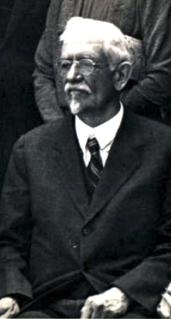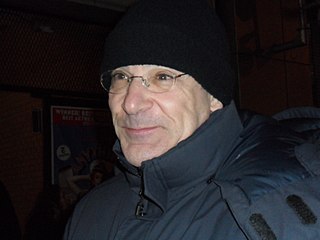Top 202 Relativity Quotes & Sayings - Page 3
Explore popular Relativity quotes.
Last updated on November 19, 2024.
What makes the theory of relativity so acceptable to physicists in spite of its going against the principle of simplicity is its great mathematical beauty. This is a quality which cannot be defined, any more than beauty in art can be defined, but which people who study mathematics usually have no difficulty in appreciating.
The prime lesson the social sciences can learn from the natural sciences is just this: that it is necessary to press on to find the positive conditions under which desired events take place, and that these can be just as scientifically investigated as can instances of negative correlation. This problem is beyond relativity.
However we select from nature a complex [of phenomena] using the criterion of simplicity, in no case will its theoretical treatment turn out to be forever appropriate (sufficient).... I do not doubt that the day will come when [general relativity], too, will have to yield to another one, for reasons which at present we do not yet surmise. I believe that this process of deepening theory has no limits.
To the philosophers of India, however, Relativity is no new discovery, just as the concept of light years is no matter for astonishment to people used to thinking of time in millions of kalpas, (A kalpa is about 4,320,000 years). The fact that the wise men of India have not been concerned with technological applications of this knowledge arises from the circumstance that technology is but one of innumerable ways of applying it.
The action of the child inventing a new game with his playmates; Einstein formulating a theory of relativity; the housewife devising a new sauce for the meat, a young author writing his first novel; all of these are in terms of definition, Creative, and there is no attempt to set them in some order of more or less Creative.
Given the relativity concept, poverty cannot be eliminated. Indeed, an economic upturn with a broad improvement in household income does not guarantee a decrease in the size of the poor population, especially when the income growth of households below the poverty line is less promising than the overall.
I deeply believe that everything is relative. We need the bad to appreciate the good, and vice versa. We need something unexpected to happen in order for us to realize that everything was expected. It's our relation to those things that we are able to decide how we feel and the level of intensity of those feelings. Such is relativity
Human rights are an aspect of natural law, a consequence of the way the universe works, as solid and as real as photons or the concept of pi. The idea of self- ownership is the equivalent of Pythagoras' theorem, of evolution by natural selection, of general relativity, and of quantum theory. Before humankind discovered any of these, it suffered, to varying degrees, in misery and ignorance.
Gravitation cannot be held responsible for people falling in love. How on earth can you explain in terms of chemistry and physics so important a biological phenomenon as first love? Put your hand on a stove for a minute and it seems like an hour. Sit with that special girl for an hour and it seems like a minute. That's relativity.
The Relativity theory, the copernican upheaval, or any great scientific convulsion, leaves a new landscape. There is a period of stunned dreariness; then people begin, antlike, the building of a new human world. They soon forget the last disturbance. But from these shocks they derive a slightly augmented vocabulary, a new blind spot in their vision, a few new blepharospasms or tics, and perhaps a revised method of computing time.
If you use language that divides people and makes people who agree with you really stoked and people who disagree with you disengaged then you're preaching to a choir, and you've lost any kind of relativity across the spectrum. So it's important to be subtle and understand that there's a lot more you can learn.
[Max Planck] was one of the finest people I have ever known... but he really didn't understand physics, [because] during the eclipse of 1919 he stayed up all night to see if it would confirm the bending of light by the gravitational field. If he had really understood [general relativity], he would have gone to bed the way I did
Trying to understand the way nature works involves a most terrible test of human reasoning ability. It involves subtle trickery, beautiful tightropes of logic on which one has to walk in order not to make a mistake in predicting what will happen. The quantum mechanical and the relativity ideas are examples of this.
Einstein's relativity work is a magnificent mathematical garb which fascinates, dazzles and makes people blind to the underlying errors. The theory is like a beggar clothed in purple whom ignorant people take for a king... its exponents are brilliant men but they are metaphysicists rather than scientists.
By far the most important consequence of the conceptual revolution brought about in physics by relativity and quantum theory lies not in such details as that meter sticks shorten when they move or that simultaneous position and momentum have no meaning, but in the insight that we had not been using our minds properly and that it is important to find out how to do so.
String theory?[pause] It closed the conceptual gulp between relativity and quantum mechanics. It postulates that subatomic particles are not points, but strings, about one planck length long. The rate at which strings vibrate can generate the properties of all known particles. Huh? How did I know that?
There does seem to be a sense in which physics has gone beyond what human intuition can understand. We shouldn't be too surprised about that because we're evolved to understand things that move at a medium pace at a medium scale. We can't cope with the very tiny scale of quantum physics or the very large scale of relativity.
By the time 1967 had rolled around, general relativity had been relegated to mathematics departments... in most people's minds, it bore no relation to physics. And that was mostly because experiments to prove it were so hard to do - all these effects that Einstein's theory had predicted were infinitesimally small.
I discovered Einstein said the same thing about his celebrated theories of relativity that writers say about their work when he said he didn't have any feelings of personal possession of these ideas. Once they were out there, they came from somewhere else. And that's exactly the feeling when you write. You don't feel possessive about it.
Einstein has a feeling for the central order of things. He can detect it in the simplicity of natural laws. We may take it that he felt this simplicity very strongly and directly during his discovery of the theory of relativity. Admittedly, this is a far cry from the contents of religion. I don't believe Einstein is tied to any religious tradition, and I rather think the idea of a personal God is entirely foreign to him.
In the 'in-itself' there is nothing of 'causal connections', of 'necessity', or of 'psychological non-freedom'; there the effect does not follow the cause, there is no rule or 'law'. It is we alone who have devised cause, sequence, for-each-other, relativity, constraint, number, law, freedom, motive, and purpose; and when we project and mix this symbol world into things as if it existed 'in itself', we act once more as we have always acted- mythologically.
A first grader should understand that her or his culture isn't a rational invention; that there are thousands of other cultures and they all work pretty well; that all cultures function on faith rather than truth; that there are lots of alternatives to our own society...Cultural relativity is defensible, attractive. It's a source of hope. It means we don't have to continue this way if we don't like it.
Science is not just for an elite few. Science's vision of the universe is becoming increasingly inaccessible. That doesn't mean it's wrong. On some levels, general relativity is right, because we have to take its calculations into account to produce accurate GPS systems. Instrumentally, it's correct to something like twenty decimal places. But epistemologically and psychologically, it is not available to most of our population.
Einstein had two new predictions from general relativity. One was that light would bend. That was tested in 1919, and basically, he was proven right. The second prediction was gravitational waves, which took us 100 years to prove. The theory itself, which is thought by most to be rather obscure, you use every day, probably.
The supposed astronomical proofs of the theory [of relativity], as cited and claimed by Einstein, do not exist. He is a confusionist. The Einstein theory is a fallacy. The theory that ether does not exist, and that gravity is not a force but a property of space can only be described as a crazy vagary, a disgrace to our age.
The media thinks that only the cutting edge of science, the very latest controversies, are worth reporting on. How often do you see headlines like 'General Relativity still governing planetary orbits' or 'Phlogiston theory remains false'? By the time anything is solid science, it is no longer a breaking headline.
I have read various articles on the fourth dimension, the relativity theory of Einstein, and other psychological speculation on the constitution of the universe; and after reading them I feel as Senator Brandegee felt after a celebrated dinner in Washington. "I feel," he said, "as if I had been wandering with Alice in Wonderland and had tea with the Mad Hatter."
One of the most exciting things about dark energy is that it seems to live at the very nexus of two of our most successful theories of physics: quantum mechanics, which explains the physics of the small, and Einstein's Theory of General Relativity, which explains the physics of the large, including gravity.
The relativity principle in connection with the basic Maxwellian equations demands that the mass should be a direct measure of the energy contained in a body; light transfers mass. With radium there should be a noticeable diminution of mass. The idea is amusing and enticing; but whether the Almighty is laughing at it and is leading me up the garden path -- that I cannot know.

















































